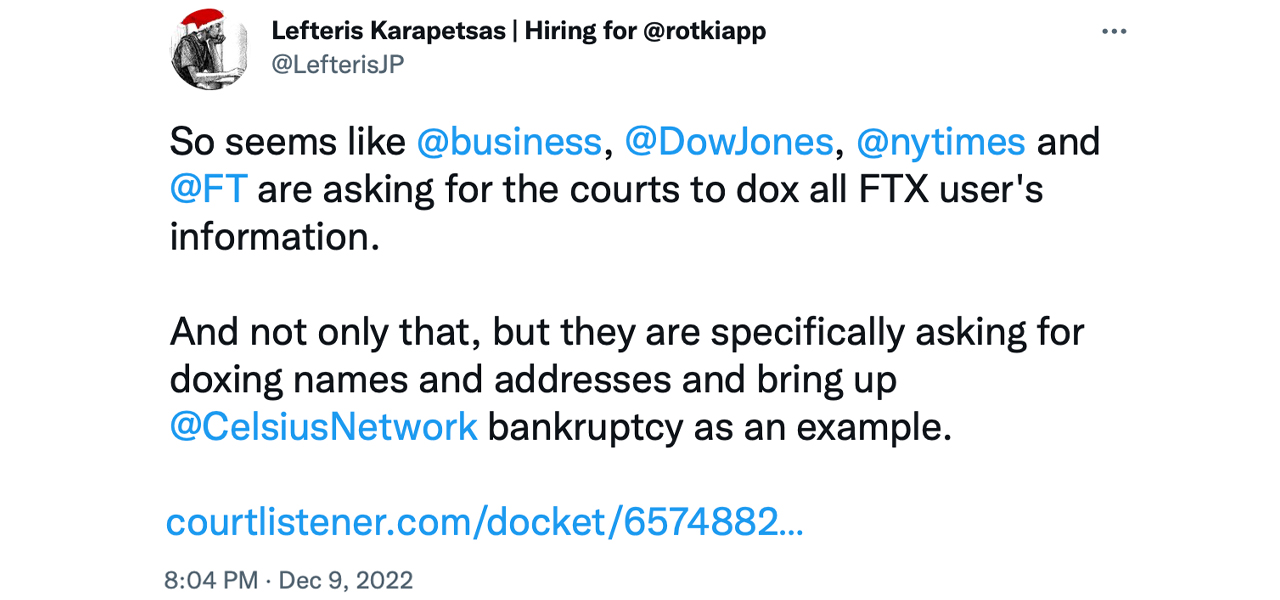Amid the ongoing FTX bankruptcy proceedings, court documents indicate that media firms such as Bloomberg, the New York Times (NYT), Dow Jones & Company, and the Financial Times (FT) want the redacted information tied to FTX creditors unsealed. The media companies believe the public should be made aware of the creditors’ information, as the publications stressed in the court filing that the “news media acts as the eyes and ears of the public.”
So-Called ‘Media Intervenors’ Insist the Court Should Unseal FTX’s Creditor Information
Four major news media publications have filed a document with the Chapter 11 bankruptcy case tied to the now-defunct FTX cryptocurrency exchange. Essentially, the publications call themselves “media intervenors” and the intervenors “object to the continued sealing and redaction of information that historically has been quintessentially public in nature.” The four media outlets include the Financial Times (FT), the New York Times (NYT), Bloomberg, and Dow Jones & Company.

The so-called “media intervenors” cite a specific rule that permits “any interested entity” to intervene in a bankruptcy matter and “with respect to any specified matter.” The publications also says that the courts have “routinely recognized the right of the media” to “intervene” or “challenge sealing orders.” The filing adds:
The news media acts as the eyes and ears of the public, informing the public of issues of the day. This valuable social function is hampered by sealing of judicial records.
Despite the debtor’s objections to keep the customer list in strict confidence, and the reasoning that says the dissemination of the debtors’ customer list could cause harm to the clients, the “media intervenors” call these arguments “vague statements” that “do not appear to satisfy the evidentiary burden.” Bloomberg, FT, NYT, and the Dow media firms insist that “redacting the names of creditors is inappropriate.” The court filing continues:
While redaction of contact information arguably may be justified in some circumstances to prevent identity theft and harassment, releasing the names of the creditors neither exposes the creditors to risk of identity theft nor to personal danger. It also does not create undue risk of unlawful injury.
Additionally, the Celsius bankruptcy case is highlighted by the media firms in the court filing. In that specific case, the bankruptcy court published 14,000 pages…
Click Here to Read the Full Original Article at Bitcoin News…
























